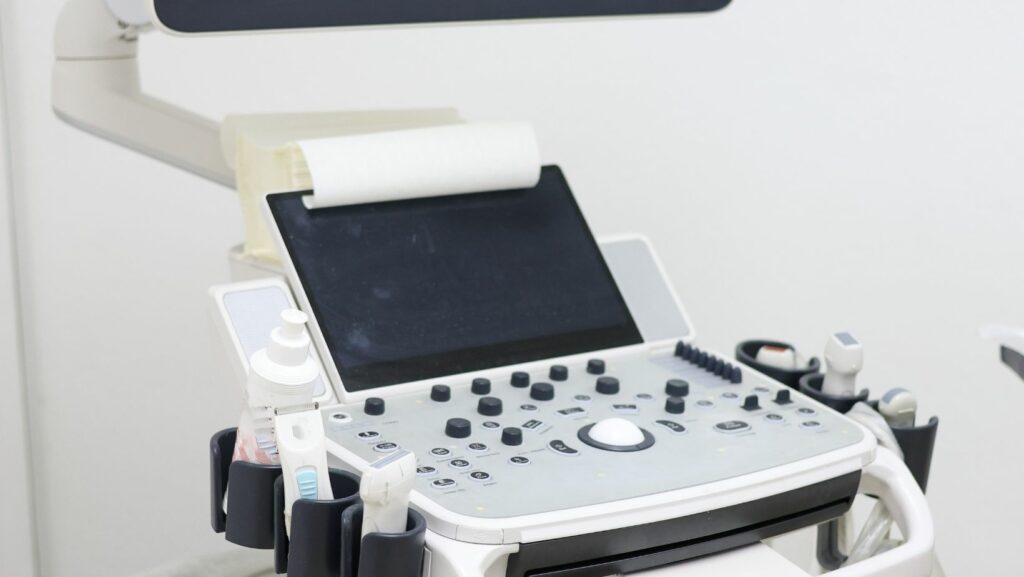How to Become a Ultrasound Tech
 Are you interested in a career in healthcare that combines cutting-edge technology with patient care? Becoming an ultrasound tech might be the perfect path for you. Ultrasound technicians, also known as diagnostic medical sonographers, play a crucial role in diagnosing medical conditions using imaging technology.
Are you interested in a career in healthcare that combines cutting-edge technology with patient care? Becoming an ultrasound tech might be the perfect path for you. Ultrasound technicians, also known as diagnostic medical sonographers, play a crucial role in diagnosing medical conditions using imaging technology.
In this article, you’ll discover the steps to embark on a rewarding journey towards becoming a skilled ultrasound tech. From the required education and training to the essential skills needed in this field, we’ll guide you through the process of entering this in-demand profession. Whether you’re a recent high school graduate or considering a career change, the field of ultrasound technology offers a promising future with opportunities for growth and specialization.
Exploring the Ultrasound Technician Career Path
Embarking on the journey to become an ultrasound technician opens doors to a rewarding career in the healthcare industry. Individuals interested in pursuing this path can explore various opportunities for growth and specialization within the field of ultrasound technology. Here’s an overview of the typical career path for aspiring ultrasound technicians:
1. Education and Training Requirements
To kickstart a career as an ultrasound technician, individuals typically need to complete an accredited educational program. This often includes earning an associate’s or bachelor’s degree in diagnostic medical sonography. These programs cover essential topics such as anatomy, physiology, patient care, and ultrasound physics. Additionally, practical training through internships or clinical rotations is crucial to gaining hands-on experience in performing ultrasounds and working with patients.
2. Certification and Licensure
After completing the required education and training, individuals may choose to pursue professional certification to enhance their  credentials and marketability. The American Registry for Diagnostic Medical Sonography (ARDMS) and the American Registry of Radiologic Technologists (ARRT) offer certification exams that assess the competency of aspiring ultrasound technicians. Moreover, some states require licensure to practice as a diagnostic medical sonographer, emphasizing the importance of meeting specific regulatory requirements.
credentials and marketability. The American Registry for Diagnostic Medical Sonography (ARDMS) and the American Registry of Radiologic Technologists (ARRT) offer certification exams that assess the competency of aspiring ultrasound technicians. Moreover, some states require licensure to practice as a diagnostic medical sonographer, emphasizing the importance of meeting specific regulatory requirements.
3. Key Skills and Attributes
Successful ultrasound technicians possess a unique set of skills and attributes that contribute to their effectiveness in the role. Strong communication skills are essential for interacting with patients and collaborating with healthcare professionals. Attention to detail, critical thinking, and problem-solving skills are also paramount when conducting ultrasound scans and interpreting images accurately. Furthermore, a compassionate and patient-centric approach is vital to providing quality care and ensuring positive patient experiences.
4. Career Advancement and Specialization
As ultrasound technology continues to evolve, ultrasound technicians have opportunities for career advancement and specialization. Technicians can choose to focus on specific areas such as obstetrics, cardiology, or musculoskeletal sonography. By pursuing advanced certifications or specialized training courses, ultrasound technicians can enhance their expertise and expand their career options. Moreover, gaining experience in diverse clinical settings or pursuing leadership roles can lead to greater professional growth and recognition within the field.
5. Job Outlook and Salary Potential
The job outlook for ultrasound technicians remains positive, with an increasing demand for diagnostic imaging services across healthcare  settings. As technology advances and the population ages, the need for skilled ultrasound technicians is expected to grow. According to the Bureau of Labor Statistics, the median annual wage for diagnostic medical sonographers is around $75,920, indicating a competitive salary potential for individuals in this profession.
settings. As technology advances and the population ages, the need for skilled ultrasound technicians is expected to grow. According to the Bureau of Labor Statistics, the median annual wage for diagnostic medical sonographers is around $75,920, indicating a competitive salary potential for individuals in this profession.
By following these steps and nurturing essential skills, individuals can pave the way for a successful career as an ultrasound technician, contributing to the vital healthcare sector and making a difference in patients’ lives.
Education Requirements for Ultrasound Techs
When considering a career as an ultrasound technician, individuals must meet specific education requirements to qualify for this profession. Here are some key details regarding the educational pathway to becoming an ultrasound tech.
To become a qualified ultrasound technician, individuals must complete an accredited program in diagnostic medical sonography. These programs are offered at various educational institutions such as community colleges, vocational schools, universities, and hospitals. Accredited programs ensure that students receive the necessary training and education to excel in the field of ultrasound technology. It is crucial to choose a program that is recognized by accrediting bodies like the Commission on Accreditation of Allied Health Education Programs (CAAHEP) or the Joint Review Committee on Education in Diagnostic Medical Sonography (JRC-DMS) to ensure the quality and relevance of the education received.

